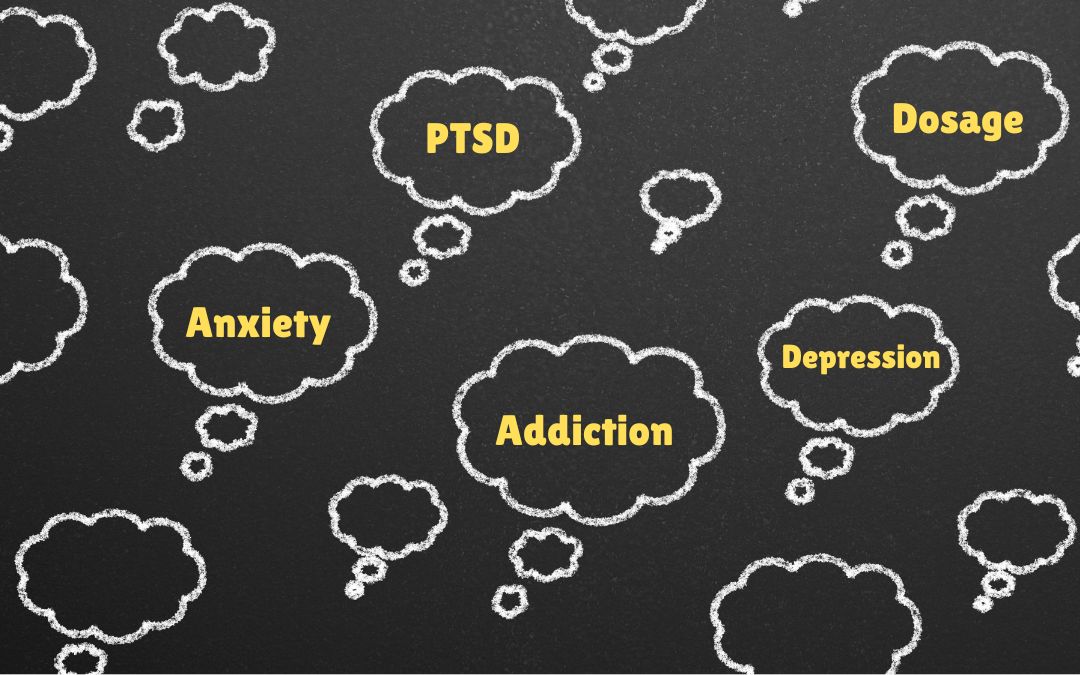Medical cannabis offers therapeutic benefits for various health conditions, but its use must be approached with precision, particularly concerning dosage and timing, to ensure safety and avoid health risks, especially in younger populations.
As a physician specializing in cannabis therapeutics, I stress the critical need for proper dosage and timing to maximize benefits and minimize health risks.
What is Medical Cannabis?
Medical cannabis, derived from the cannabis plant, is used to alleviate symptoms associated with specific medical conditions such as chronic pain and severe nausea. This plant contains chemicals that can provide substantial relief if used correctly under medical supervision.
Health Risks Associated with Improper Use of Medical Cannabis
While medical cannabis can be beneficial, improper use can lead to significant health risks. Understanding these risks underscores the importance of adhering to prescribed doses and schedules:
Neurological Effects:
Cannabis directly impacts the brain’s development and function, particularly concerning adolescents and children whose brains are still maturing. In fact, in most instances, cannabis and cannabinoids should not be used in children and young adults.
For older patients and those few younger patients with disease severe enough to warrant the risks associated with cannabis use, precise dosing is vital to minimize adverse effects on cognitive functions, learning abilities, and academic performance. Overuse or misuse can impair neurological development and lead to long-term consequences.
Memory Impairment:
THC, the primary medical component in cannabis, can significantly affect short-term memory. While this can be helpful for patients with PTSD and other diagnoses, it is not helpful for most others.
Adequate attention to dosing and appropriate timing of use are crucial in minimizing memory impairment, particularly for patients who use cannabis for prolonged periods.
Emotional Consequences:
Cannabis is known to cause mood alterations, and as with all medications, this can be either good or bad. Cannabis can create euphoria, which is primarily sought for recreational enjoyment.
It can also be used to treat anxiety and depression, but is very much a double-edged sword in that it can be helpful at low doses delivered at the right time, and can backfire and worsen these same symptoms if not used correctly.
Carefully controlled doses, administered under medical supervision, help ensure the best mental health outcomes.
Respiratory Health Risks:
Smoking cannabis can harm lung tissue and exacerbate respiratory conditions.
Alternative methods of administration, such as flower vaporization or oral ingestion are recommended to mitigate these risks. These methods allow for easier dose control and reduce respiratory exposure to harmful byproducts of combustion.
Please also remember that vape pens are not safe and not the same as flower vaporizers.
Dependency and Addiction:
There is a risk of developing dependence on cannabis, characterized by escalating dose and withdrawal symptoms when it is stopped. Addiction occurs when the use of the drug is compulsive and interferes with daily life.
Strict adherence to medical guidelines regarding dosage and frequency of use is essential to prevent dependence and maintain the therapeutic integrity of cannabis use.
The Role of Dosage and Timing
The prescription of medical cannabis is a decision that comes after careful consideration by healthcare professionals. It’s prescribed only when it is deemed the most suitable intervention for a patient’s condition and is closely monitored for efficacy and safety. Patients are advised to adhere strictly to the prescribed use and not to substitute or share their medication.
The careful determination of dosage and timing is fundamental to the therapeutic use of medical cannabis. Physicians must evaluate the minimum effective dose and the optimal times for administration to maximize therapeutic effects and minimize side effects. This approach requires a personalized assessment and continuous monitoring by healthcare professionals.
Patient Education and Monitoring Health Risks
Educating patients about the risks and proper use of medical cannabis is as important as the prescription itself. Patients must understand the importance of following the prescribed dosages and schedules, and they should be aware of potential side effects and how to manage them.
Regular follow-up appointments allow healthcare providers to monitor the effectiveness of the treatment and make any necessary adjustments to the regimen.
Further, cannabinoid physicians should behave as part of the patient’s care team and be available not only to answer the patient’s questions and concerns, but also the questions or concerns of the other treating clinicians. This ensures that other team members become better educated about these medications and that the patient get solid, non-conflicting advice from the team.
Conclusion
Medical cannabis, when used correctly under professional supervision, can be a valuable treatment option for certain medical conditions. However, the safety of its use hinges on a disciplined approach to dosage and timing.
By strictly adhering to medical advice and maintaining open communication with healthcare providers, patients can safely harness the therapeutic benefits of medical cannabis while minimizing its risks.
Always consult with a healthcare provider skilled in cannabis therapeutics to determine the most appropriate treatment regimen for your specific condition.
Consult with a Qualified Massachusetts Medical Marijuana Expert Today
Those considering using THC, CBD, or any type of medicine found in cannabis to help manage their condition should consider speaking to a trained medical expert who is knowledgeable about using cannabis therapeutically.
Massachusetts medical marijuana doctor Jordan Tishler, M.D. sits on the faculty of Harvard Medical School and has years of experience helping patients treat pain and other ailments using cannabis. He and the team at InhaleMD stand ready to assist patients in determining whether medical marijuana is right for them.
For more information, or to set up a virtual consultation with the team at InhaleMD, call us at (617) 477-8886 today.

